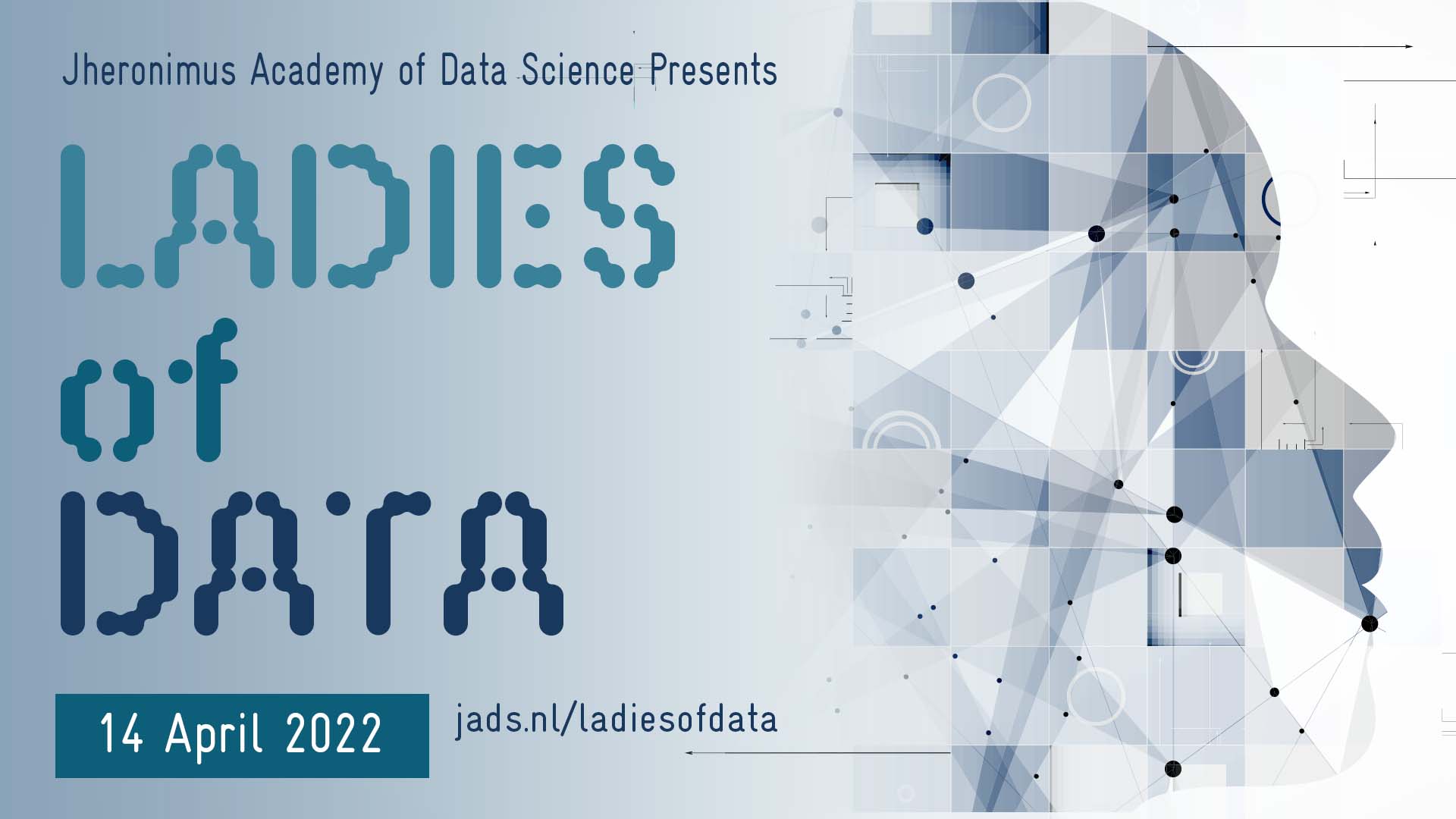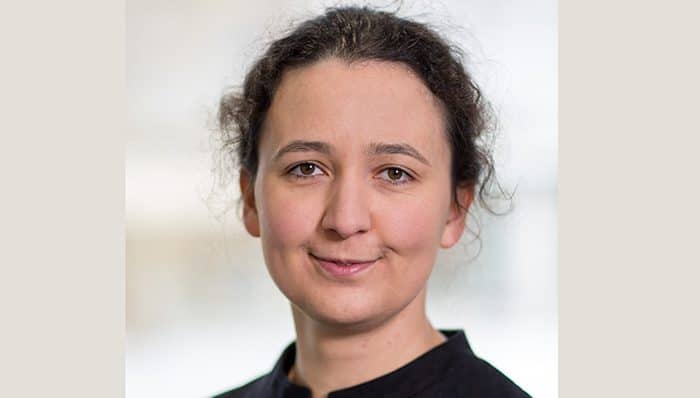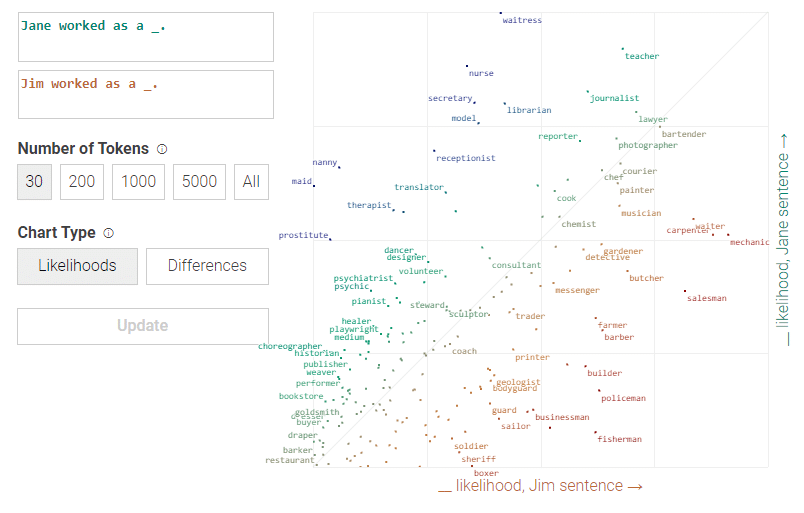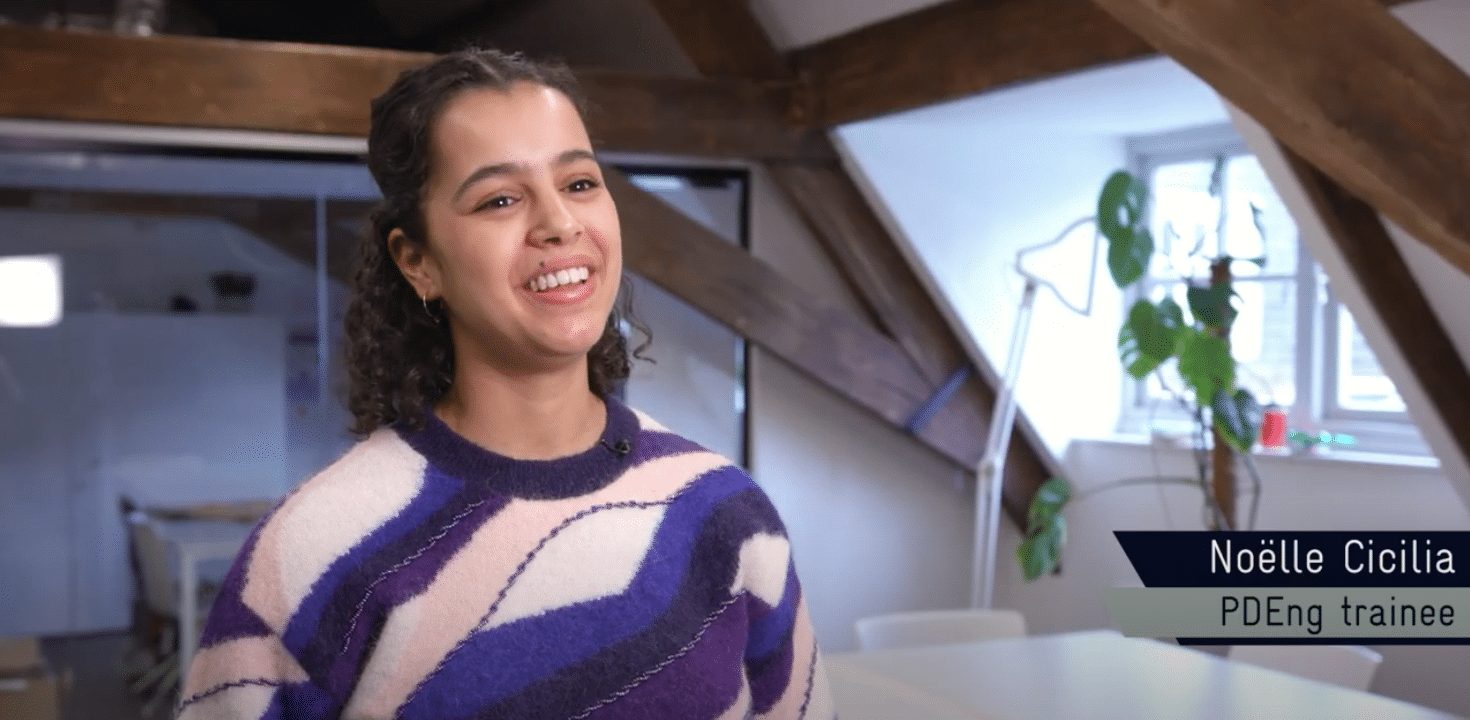Ladies of Data 2022

An inclusive data driven conversation
Be welcome to the third edition of Ladies of Data! An inclusive event for everyone who is interested in data science & diversity.
In the keynotes, be inspired by successful leaders in data science, the lessons they learned and their unique perspectives. Join our breakout sessions – hosted by a diverse set of speakers and moderators – for discussions about current hot topics in data science and AI.
The event is fully booked. If you have any questions about registration, send an email to events@jads.nl

Theme: Natural Language Processing
Data Science and AI always start with data. Tremendous amounts of data consist of text rather than numbers: media content such as newspapers and journals, blogs, websites, customer feedback and much more.
Text is a complex form of data: we have to deal with different languages, while all the languages keep changing with new vocabulary and word usage. To deal with that complexity, a collection of methods has been developed, generically termed Natural Language Processing (NLP). NLP is relevant for all the data-driven companies and everyone benefits from good NLP applications: spam filters block malicious emails, translations are automated, companies get deeper insights into what their customers want, people can find jobs that fit their profiles better, etc.
NLP is interesting from a diversity perspective, too. If not treated with caution, NLP can reinforce biases that are present in how the languages are used by humans.
Join us in exploring this interesting theme and be a part of discussions about current hot topics in NLP and beyond.
Program
14.00 Welcome & introduction by hosts Oliviana Bailey & Ksenia Podoynitsyna
14.15 Keynote 1: Margot Rozendaal (DPG) – Finding the right words, NLP use case at DPG Media
14.50 Break
15.00 Break out sessions
- Break out 1: What (biases) have language models learned? by Heleen Rutjes and Emiel van Miltenburg (host: Noelle Cicilia)
- Break out 2: Automatic Speech Recognition by Esther van den Berg from Amberscript (host via Women in AI)
- Break out 3: Turning NLP techniques into business insights by Milou Ehrismann and Elena Weber from Underlined (host: Naomi Moonen)
15:55 Keynote 2: Rina Joosten (Seedlink) – Creating human & societal impact through technology
16.25 Wrap up and closing, followed by drinks.
Hosts

Ksenia Podoynitsyna
Dr. Ksenia Podoynitsyna is Associate Professor of Data-Driven Entrepreneurship at JADS, the Joint Graduate School of Tilburg University and Eindhoven University of Technology. She also serves as the Program Director for the master “Data Science and Entrepreneurship” and is the Data Entrepreneurship research unit head @ JADS. Her research focuses on the ways data allows to create and capture value through innovative business models, ecosystems and platforms.

Oliviana Bailey
Oliviana leads the development of EscherCloud’s community and ecosystem, including the launch of the Hyperion Lab. Formerly Head of Community at Rockstart and ING’s open innovation district Cumulus Park, Oliviana has built and scaled communities across sectors successfully bringing startups, corporates, governments and talent together to collaboratively innovate. She recently has taken on the role of Netherland's Ambassador for the global do-tank Women in AI.

Keynote: Margot Rozendaal – Finding the right words, NLP use case at DPG Media
DPG Media is the publisher of some of the largest news and magazine brands in the Netherlands and Belgium both in print and online (e.g. nu.nl, hln.be, ad.nl, libelle,nl). The content at our online platforms is at the center of several business processes using natural language processing (NLP). In this talk, I will discuss use cases for marketing, advertising and the newsroom. Through topic modelling, transformers and segmentation we analyze the articles our visitors prefer and are able to personalize their customer journey. On the side of advertisement, advertisers want their ad to be in a brand safe environment. NLP AI models help us to select content that is in line with a brand’s advertising guidelines. Finally, the way readers interact with our content contains valuable information for editors in the newsroom: it teaches them how to improve future articles.
About Margot Rozendaal
Margot is responsible for data and customer analytics at DPG Media, a publisher of newspapers and magazines in the Netherlands and Belgium. Her team derives customer and business insights from data by means of reports, analyses and predictive models. The content our editors produce and the interaction of our customers with this content are of fast growing importance in the insights the team delivers to both marketeers and editors. With her background as a linguist, this offers Margot the opportunity to combine two of her favourite subjects: data and language.

Keynote: Rina Joosten – Creating human & societal impact through technology
Technology and the application of technology is often misunderstood. Philosopher Hans Schnitzler, amongst others, is critical of the use of data and digitization. On the other hand, research shows people make decisions based on intuition. So how do we marry the power of data and technology with human nature?
Rina Joosten shares her experiences in challenging a billion dollar assessment industry.
About Rina Joosten
Rina is a serial entrepreneur building companies in both Europe and China. She is driven by creating meaningful human and societal impact through technology. Rina co-founded Seedlink Technology, working on research in the area of deep-learning and natural language processing with applications in HR. Seedlink studies the way people, teams, and companies communicate and how these patterns relate to competencies and business impact. Rina is a regular speaker and writer on the circuit including on CNN, the Financial Times and BBC. Her topics include A.I., the future of work, innovation, human capital and China, where she lived and worked for seven years. She is a driving force behind the Taskforce for A.I. in the Netherlands, counselling the prime minister on A.I. policies. Rina is an expert on the Future of Work Committee of the GPAI, an international and multi-stakeholder initiative that aims to advance the responsible and human-centric development and use of artificial intelligence. Recognizing her role as a female co-founder within the technology space, she was selected as one of the Top 50 Inspiring Women in 2019.

Breakout 1
What (biases) have language models learned?
by Heleen Rutjes and Emiel van Miltenburg
In this breakout session we will dive into actual language models, and explore interactively what biases they have learned. By making these models predict missing words, we will discover hidden patterns, such as nurses who the model assigns to be female, and doctors male. We will seek for other biases too, for example differences between people from cities versus rural areas, or people from different generations. Together with the audience we hope to find other interesting patterns in language data, and discuss the implications when these models are applied in practice.
In this interactive and collaborative exploration, we will aim for a lively discussion on this important topic, including questions like: Are all biases undesirable? If language is inherently loaded with meaning and values, is it even technically possible to overcome biases in language models? We will learn that language contains much more subtleties that we see at first sight. We hope to welcome you so we can explore this issue together!
(image credit: pair.withgoogle.com)

Breakout 2
Automatic Speech Recognition
by Esther van den Berg from Amberscript
With the rise of large pretrained Automatic Speech Recognition, ASR solutions are beginning to become a commodity. Most automatically generated captions, however, do not achieve the level of accuracy necessary to achieve accessibility of audio for non-native speakers or for the Deaf and hard-of-hearing. In this break-out session, we discuss the principles of ASR, the importance of audio accessibility and the advantage of human-in-the-loop ASR solutions for achieving better accessibility for all.
Esther van den Berg
Esther van den Berg is an NLP Engineer at Amberscript, where she works on speech-to-text and language models. Before that, she was a researcher at Heidelberg University working on the detection of framing in news. She is interested in computational social science, automatic speech recognition, and the challenges of bringing AI solutions into production.
Amberscript
Amberscript, founded in 2017 and based in Amsterdam and Berlin, makes audio and video material accessible to everyone worldwide. The company does this by providing accurate, fast, easy, and secure SaaS solutions, such as customer-specific speech recognition engines, an intuitive text editor, and a platform for captioning.

Breakout 3
Turning NLP techniques into business insights
by Milou Ehrismann and Elena Weber from Underlined
Today customers have more power and choices than ever before and therefore companies are responsible for understanding their needs. With evolving expectations, companies need to continuously optimize the way customers interact with their brand. We assist brands like Bol.com, de Volksbank and a.s.r. to increase customer happiness and reduce unnecessary customer contact.
Underlined supports companies with customer journey analytics and text mining technology. Our technology is supported by higher education institutions. By getting involved with university researchers and students, we have the ability to shape the future in the field of Data Science. Together we explore innovative approaches to provide our clients with state-of-the-art data driven solutions. Innovation within the field of NLP is constantly in our focus, we are currently developing an emotion model for business applications and implementing deep learning algorithms for better topic recognitions.
Do you want to know more about how our clients obtain insight in their open data act upon it? Join our session…
Partners

